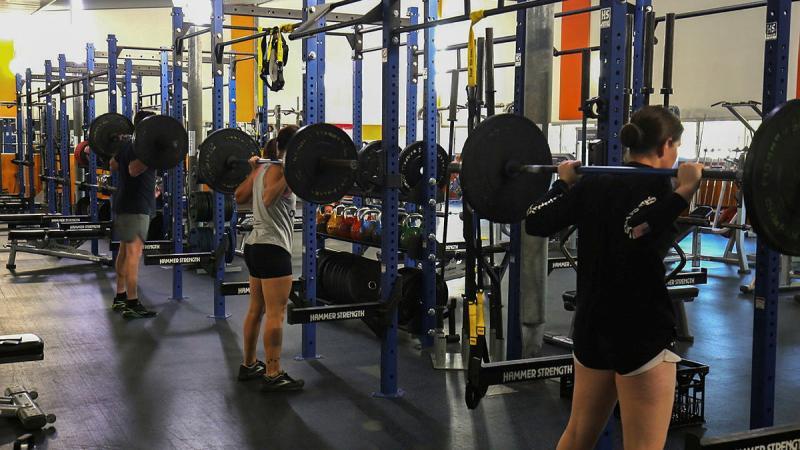Minister for Finance, Minister for Women, Minister for the Public Service
PATRICIA KARVELAS, HOST: A fourteen-month inquiry into the Big 4 consulting firms in Australia brought to light some pretty shocking revelations about how they were taking the government and taxpayers for a pretty big ride. It also highlighted just how the dependent the Public Service was on external consultants. The report makes 12 recommendations, putting the ball in the government’s court to crack down further on the industry. But the Greens say it doesn’t go far enough. Katy Gallagher is the Minister for Finance and Women, she joins us on the program this morning. Katy Gallagher, welcome back.
SENATOR THE HON KATY GALLAGHER, MINISTER FOR FINANCE: Good morning Patricia, thanks for having me on.
KARVELAS: You’ve spent the last two years in government cutting down the Public Service’s reliance on consultants and bolstering permanent departmental numbers. Will you accept all the recommendations of this inquiry?
GALLAGHER: Well, we’ll work through them, Patricia. I mean, we go through our government processes. It was handed down a couple of days ago. But when I look at the recommendations in the report, particularly the majority report, I think you know these areas that we are interested in – and it’s areas that we’re working on already. So, I think this is a useful way to have a kind of – a Senate report which shows a view across the Senate chamber. So that with the Opposition, the Government and Crossbench members, sort of prioritising the areas of reform they’d like to see. And that’s useful for me in the role that I have, to implement change across government.
KARVELAS: There are several recommendations that go directly to your department, Minister, including the department reviewing its guidance on conflicts of interest and developing a central register for conflicts of interest breaches. Will you do that?
GALLAGHER: Well, this is one of the areas I think that I’ve been very interested in and have been highlighted by some of the issues that we’ve seen over the last couple of years. So, Finance is already having a look at issues around conflicts of interest and confidentiality more broadly. And so this report will feed into that. I think there is work that we need to do in this space.
KARVELAS: And when will that work happen? You’re saying we’re working on it, but can you give us a steer as to when?
GALLAGHER: Look, it’s happening now. We’re trying to go as fast as we can. In a sense we were waiting for this report, too, because Finance has appeared before this committee. So we were interested in what the committee had to say. So we’ve got that now, so this has all been happening I guess over the past 18 months or so, we’re keen to move on it as fast as we can. But now that the report’s handed down, I’m not trying to not answer your question, we do have to go through a formal government process of responding to that report. But we’re also moving forward with changes at the same time. So, for example, we’re about to release a new supplier code of conduct which goes to some of these issues around managing conflicts and being a good corporate citizen in the way that you conduct your work with the Commonwealth.
KARVELAS: Okay, so there’s going to be a new supplier code of conduct, can you tell me what that will stipulate? How will this affect the Big Four?
GALLAGHER: Well, I think one of the issues that we’ve identified – and it’s not just the Big Four, it would be with all work that’s contracted out – so, the supplier code of conduct really sets out I guess what we expect to see from people who are procuring work with the Commonwealth. So, you know, that you act responsibly, that you act in line with APS Values, that you conduct yourself in an appropriate way, that you manage conflicts of interest, all of these issues. Because I think one of the issues that was identified with the PwC matter – and although that wasn’t a procurement matter, it did require us to look at our procurement processes – it was that there wasn’t as much I guess guidance or response to that problem that we should have had. And that’s why we’ve been working on these matters like supplier code of conduct and other work now that we’ve got this committee report.
KARVELAS: Just a couple of brief ones on this before we move on. The Greens say the recommendations only go a tenth of the way to fixing the problem. They want consultants to be banned from making political donations, and PwC to be banned from consulting for the government for five years. Will you ban them?
GALLAGHER: Well, this was some additional comments to the report. So, it wasn’t part of the majority report and I think that’s a shame. Because I understood that report to be coming as an agreed document from the chamber, which I think makes it – well, it makes it more powerful in terms of influencing government. But –
KARVELAS: But there’s often dissenting reports and minority reports out of senate committees, it’s not unusual.
GALLAGHER: No, it’s not unusual, but the way that this inquiry had been conducted with the Chair and you know – it was essentially the three major parties in the chamber working together on an agreed way forward. And as I understand it, those additional recommendations from the Greens came without any notice to other members of the committee, which I think is unfortunate. But, on the question you raised around donations, look, you know, we have a donations framework. It’s about making sure we’re clear about who is donating and reporting against that. And on banning on contracts, I mean, we do have to work with the private sector – we rely on them to provide work to the Commonwealth – then we have to have grounds –
KARVELAS: But after what PwC has done, why should they continue to get contracts?
GALLAGHER: Well, at the moment, they don’t have contracts until 1 December. There are a range of inquiries underway. This report was one of them and the government will look at that. But, you know, going to a five year ban of one company is something – well, we would have to justify that, I would think –
KARVELAS: And do you think it’s unjustifiable?
GALLAGHER: Well, I think we need to wait for some of the other inquiries that are underway. But you know, there’s no doubt we are extremely disappointed and frustrated and angry with the way that PwC has operated. They are working with Finance now on what they’ve done to change, and that work is ongoing.
KARVELAS: Don’t they need to feel some pain, though, Minister?
GALLAGHER: I think they’ve certainly felt some pain, Patricia.
KARVELAS: Well if they get contracts again, that’s not that painful. They get to make money.
GALLAGHER: Well. I would say, and I’m not here to defend them because I think their behaviour was indefensible, but I would say that they have certainly had significant reputational damage. Their work with the Commonwealth in terms of ongoing work, which contracts that existed, is much diminished. So I think there has been financial consequences, but also significant reputational damage. And not just to PwC, but to the broader consultancy sector as well. As I said, there’s some work still underway in finalising this matter and we will respond comprehensively to the Senate report.
KARVELAS: Minister, a couple of other issues. The national corruption watchdog is being investigated for its decision not to further investigate the robodebt scandal after the Royal Commission. Did they make the wrong call?
GALLAGHER: Well, I think that’s a matter that I’m not going to weigh in on. I think that’s a matter for the Commission and the Inspector now, of the NACC, to have a look at. I understand there’s been a lot of concern and complaints raised about a decision not to investigate that further and I’ll leave that to the Inspector. You know, that’s why we have these positions in place to assess the decisions of the NACC, but I’m not going to do it myself.
KARVELAS: Tomorrow, China’s second-in-charge will arrive in Australia. Our economy has previously been fairly reliant on the Chinese economy, the Chinese market. That changed of course, or at least it was diminished, when we got frozen out by China. What does this trip mean for the economy?
GALLAGHER: Well, look I think it’s an important trip, not just in an economic sense, but in a partnership and a relationship sense between China and Australia. It’s the first time we’ve had a visit at this level in seven years. It comes off the back of the Prime Minister’s visit to China. We’ve seen some of those trade impediments being lifted, most of them being lifted. Certainly, you know the big ones around barley, wine, coal. And you know, that’s certainly really important to our economic interests. And I know for all of those producers and businesses that rely on that trade relationship with China, it’s been very good news. So, this is an important visit for the country. I know the country will make the Premier very welcome.
KARVELAS: I just want to go to an issue which is squarely in your Minister for Women portfolio. You’re a parent as well. These are issues that you’re very across. What do you make of this new research from the eSafety Commissioner that harmful voices – Andrew Tate being one of the most well-known of those – are drowning out helpful ones in online conversations with boys about masculinity?
GALLAGHER: Yeah, so I had a look at this research, too. I think it confirms what a lot of us have been worried about for a long time. And this new kind of wave of – or relatively new wave – of influencing behaviour, particularly of young men, is really concerning. Because it has consequential impacts through the generations, really, as we’re trying to address violence against women and children in this country. To have kind of another wave of influencing behaviour is a real problem. So, this is something that’s on our desks, it’s on all the State and Territory desks, it’s on every parent’s desk, about how do we cope with this and how do we make sure we’re inserting and balancing other ways of being masculine into young men’s worlds. It’s not easy and I’m not going to pretend it is. But it’s another front that we have to confront and respond to.
KARVELAS: And if you banned teens from social media – so, anyone under sixteen, which appears to be a bipartisan view now – would it help with things like this? Would it help with reducing male influence, these influencers like Tate?
GALLAGHER: Well, I think on the social media front, we’ve got a committee in place that’s having a look at this across the Parliament. I mean I think every parent, everyone involved in a child’s life is worried about this and worried about the impact that social media is having on their children’s health, mental health, physical health. So, this is something that we again as a community need to respond to. And we have to look at the challenges and how you would actually implement something like that, which is why that ongoing work with the trial that we funded in the Budget is really important to understand how that would work. And also what the behaviour change would be, you know, for if you ban something, what would then – you know, you have to go in with your eyes open about the attempts then to fill another spot in the online world. So, I guess all of these – it’s not simple, I wish it was, but we’re very actively engaged in it and we hear all of the concerns of parents. Many of us – well, most of us – are parents ourselves. We’re dealing with it in our households as well.
KARVELAS: We certainly are. But the other part of it is, even if you ban it for under sixteen-year-olds, I mean, someone like Andrew Tate, YouTube, podcasts. It’s everywhere.
GALLAGHER: Yeah, well that goes to some of the issues that I was just alluding to. You know, if you ban social media, what is the consequence of that. And we know that these things are really hard, when you ban something. Doesn’t mean people’s interest wanes. Or you know, that children are all of a sudden not going to have access to that information, which is why this trial is important. Why the work of the eSafety Commissioner – she is a legend, that Julie Inman Grant, in the work that she’s doing. Or the committee that’s been set up, a cross-party committee, is really important as well. We have to understand how best to go about protecting our children’s mental wellbeing, mental health and wellbeing.
KARVELAS: Thank you so much for your time, Minister.
GALLAGHER: Thanks for having me on, PK.








